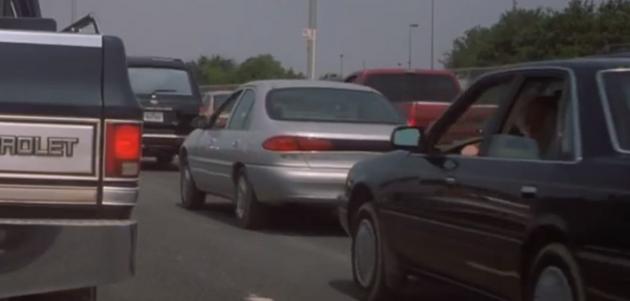The Reason You Think Other Lines Are Faster Than Yours (Video)
Aug 29, 2013 23:03

You're stuck in line in traffic. And you see the next lane moving. You make a quick swift entry to the lane. Only to find that you're stuck again, and that the other lane is moving faster than yours. Tell me you've not experienced this before!
According to BBC Future, it's got something to do with illusory correlation.
It exists to help us make quick decisions based on limited information without doing any mental math. We compare two things that are similar when they are actually not. Here's an explanation:
So here we have a mechanism which might explain my queuing woes. The other lanes or queues moving faster is one salient event, and my intuition wrongly associates it with the most salient thing in my environment—me. What, after all, is more important to my world than me. Which brings me back to the universe-victim theory. When my lane is moving along I'm focusing on where I'm going, ignoring the traffic I'm overtaking. When my lane is stuck I'm thinking about me and my hard luck, looking at the other lane. No wonder the association between me and being overtaken sticks in memory more.
This distorting influence of memory on our judgements lies behind a good chunk of my feelings of victimisation. In some situations there is a real bias. You really do spend more time being overtaken in traffic than you do overtaking, for example, because the overtaking happens faster. And the smoke really does tend follow you around the campfire, because wherever you sit creates a warm up-draught that the smoke fills. But on top of all of these is a mind that over-exaggerates our own importance, giving each of us the false impression that we are more important in how events work out than we really are.
Will this make you think harder the next time before you switch to another lane you think is going faster than your current one? Probably not. #truth.This distorting influence of memory on our judgements lies behind a good chunk of my feelings of victimisation. In some situations there is a real bias. You really do spend more time being overtaken in traffic than you do overtaking, for example, because the overtaking happens faster. And the smoke really does tend follow you around the campfire, because wherever you sit creates a warm up-draught that the smoke fills. But on top of all of these is a mind that over-exaggerates our own importance, giving each of us the false impression that we are more important in how events work out than we really are.
BBC Future







































































